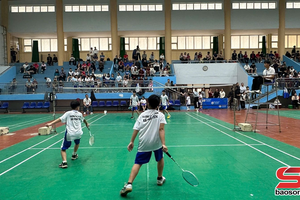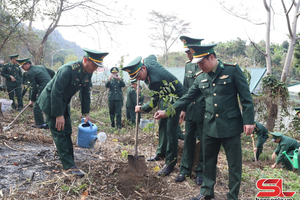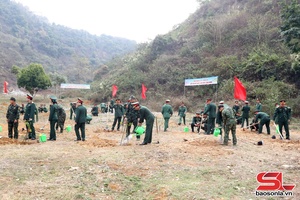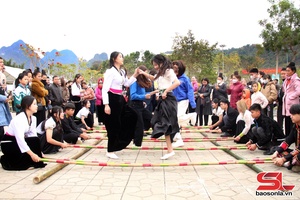
Dinh Thi May, Director of the Kien Cuong Cooperative, the first person to introduce this pear variety to Phieng Khoai in 2014, said: “When I brought the pear variety here, many people doubted its chances of success. The first trees were strong and bore plenty of fruit. Now, our orchard has expanded to over 6 hectares, with an estimated yield of 35 tonnes, up 30% from last year. Selling prices range from 25,000 to 50,000 VND (0.96-1.91 USD) per kilogram, bringing in over 900 million VND in revenue.”
Tai Nung pears grown in Phieng Khoai are known for their appealing appearance—round, uniform, with thin skins, a crisp texture, mild sweetness, and a distinctive aroma. The trees typically flower in February, with harvesting taking place from late May to mid-July. They are especially favoured by consumers for their refreshing taste and are cultivated using organic methods.

The Kien Cuong Cooperative has 10 members collaborating across over 60 hectares of pear orchards. To ensure consistent market access, the cooperative also handles post-harvest processing—sorting, labeling with traceability QR codes, and helping farmers market the pears on e-commerce platforms. In 2024 alone, the cooperative sold more than 100 tonnes of pears nationwide.
Le Van Duc, a trader from Hanoi who has worked with the cooperative for over three years, said: “I learned about Tai Nung pears through a friend. After tasting one, I was impressed by the crisp texture and subtle sweetness. I traveled to the commune to survey the orchards and signed a supply contract with the Kien Cuong Cooperative. On average, I purchase about 20 tonnes each harvest.”

Catching up with current market trends, Tai Nung pears are now sold on e-commerce platforms such as TikTok and Buudien.vn. This not only helps farmers expand their customer base but also boosts the product’s market value. Today’s consumers are highly conscious of product origin. Every order includes a QR code for origin tracing, with a commitment to safe, sustainable cultivation practices, earning increasing consumer trust.

Looking toward sustainable development, farmers are now forming household groups and adopting organic farming techniques, ensuring the pears are safe and of high quality. Bui Van Quan, Vice Chairman of the Phieng Khoai commune People’s Committee, shared: “Our commune now has over 70 hectares of pear, with this year’s output estimated at more than 150 tonnes. Around 70% of this has already been contracted or listed on e-commerce platforms.”

The Tai Nung pear has been identified as a key crop well-suited to the region’s soil and climate, contributing to poverty reduction. The commune is also working with the district Division of Agriculture and Environment to establish a geographical indication zone.
In addition, they are developing agro-tourism models tied to the flowering and harvest seasons, and participating in agricultural trade fairs to attract investment in pear processing and purchasing, ultimately improving product quality and increasing incomes for local people.























You have 500/500 characters left
Please enter 5 or more characters!!!